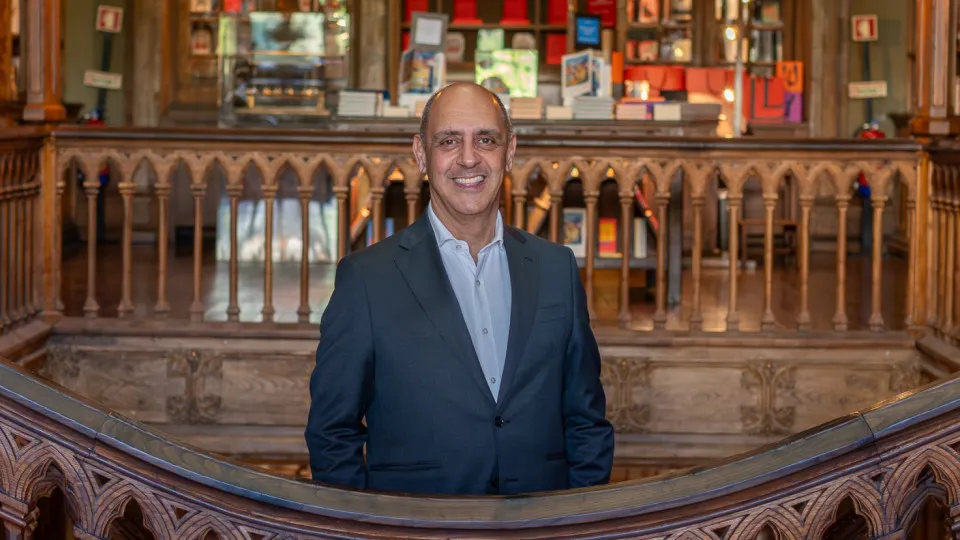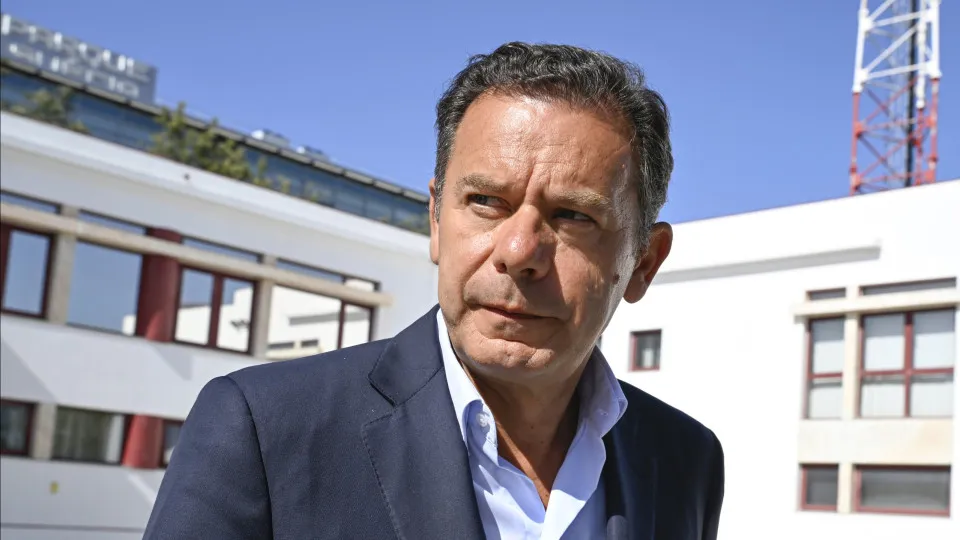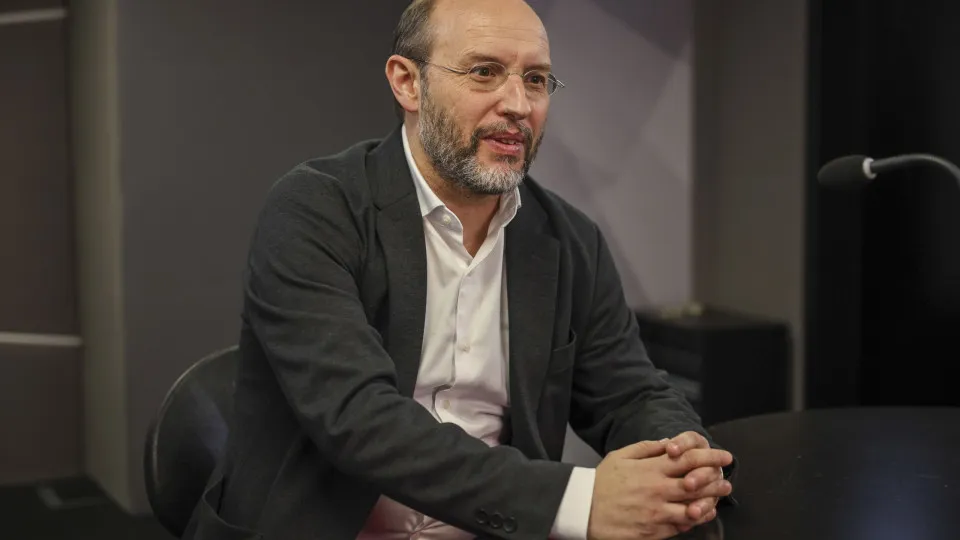
Manuel Pizarro is an indelible figure in Porto, where he established his medical and political career. Following his tenure in the European Parliament and as health minister, the socialist now returns to the municipal stage, focusing on the city he holds dear.
In an interview with Notícias ao Minuto, the Socialist Party (PS) candidate for the Porto City Council in the municipal elections on Sunday, October 12, discussed his agenda and the main issues in public debate: housing, safety, and mobility, as well as health, a field where he aims to make a “generous intervention.”
Despite being a veteran in municipal races, Manuel Pizarro does not feel overly comfortable. Polls suggest he is neck-and-neck with main opponent Pedro Duarte of the PSD.
However, Pizarro believes his experience as a councilor offers advantages and hopes that “third time’s the charm,” urging residents to grant him the “opportunity to serve Porto as its mayor.”
Moderate rent means a T1 at 400 euros, a T2 at 550 euros, a T3 at 700 euros. This is moderate rent. Not even cheap rent. It is moderate rent. A rent that average class people, young people, can aspire to afford
Housing has been one of the central issues in recent elections, notably in Porto and Lisbon, where residents face challenges in buying or renting homes. How does he plan to address this if elected?
Immediately after assuming office, Pizarro plans to hold a meeting at City Hall with all housing sector partners, who assisted in crafting his ‘Habitar no Porto’ program. He considers his program innovative, addressing the real issue, which he identifies as a supply shortage, that resulted in surging prices, with Porto experiencing a 72% rental increase from 2020 to 2024.
To address this, the ‘Habitar no Porto’ initiative seeks to increase supply by utilizing city and state land, fostering partnerships with private entities and cooperatives to deliver 5,000 units of moderate rent housing.
After presenting this plan on July 10, the government recently proposed a moderate rent concept up to 2,300 euros, which Pizarro finds absurd. He emphasizes that moderate rent should be a T1 at 400 euros, a T2 at 550 euros, a T3 at 700 euros.
How does he plan to balance tourism development with residents’ quality of life, given Porto’s rise as a tourist destination?
While Porto has over 20,000 vacant homes, Pizarro sees the issue as more complex than tourism disrupting housing access. Instead, he focuses on increasing housing supply, aiming for 5,000 moderate rent homes for young and middle-class residents.
What is his stance on the controversial Avenida Nun’Alvares urban project involving three 25-story towers?
Pizarro disapproves of the current licensing process for the project, citing risks to Porto’s image, particularly the Foz do Porto. He advocates for a thorough environmental impact study and assurances of adequate public space amid concerns over the project’s feasibility.
We cannot make people choose buses by prohibiting cars. That won’t work. Rather, they need to be convinced buses are a good alternative
How does he propose to improve the Porto public transport network?
He advocates for genuine prioritization of public transport, expanding bus corridors from 15 to 25 kilometers, leveraging technology to grant buses priority at traffic signals, and improving overall service reliability. A real-time tracking system on smartphones is also essential to enhance user experience.
Pizarro suggests most buses should be double-deckers, offering more comfortable seating and a better urban experience, stressing that convincing people buses are a viable alternative, not prohibitions on cars, is key to success.
Why does he believe the Ministry of Infrastructure should intervene in the Metrobus project, recently suspended after the interview?
With Phase 1 around Rotunda da Boa Vista completed, Pizarro has reservations about the implementation but suggests operational trials after completion. He criticizes the commencement of Phase 2 as provocative and insists the project requires ministerial intervention, given the Metro do Porto’s state ownership and the public’s expressed concerns over its impact, notably on green spaces.
We cannot solely focus on crime repression. Our priority must be preventing crime
What would he prioritize in overhauling the VCI (Via de Cintura Interna)?
Pizarro envisions transforming the VCI into an urban avenue rather than a quasi-highway, emphasizing a phased approach to avoid worsening traffic. Initially, he proposes rerouting heavy traffic via the CREP by abolishing tolls to reduce VCI congestion by 3%.
Further, he suggests abolishing circular tolls around Porto to encourage more direct commutes, potentially decreasing VCI traffic by 10%. Long-term, a maximum 50 km/h speed limit on the VCI within city limits would reduce accidents, opening opportunities for pedestrian and bicycle infrastructure.
In terms of safety in Porto, what are the biggest problems, and what measures would he prioritize?
Pizarro identifies drug trafficking and consumption as major issues impacting public safety. To tackle this, he proposes optimizing visible community policing, enhancing surveillance to deter crime, and improving public spaces with better cleanliness and lighting.
He underscores the need for robust action against drug trafficking alongside social and health intervention programs for dependents, aiming to reduce demand and the associated disruptions in public life.
I truly know my city in detail and practicality. I know what’s needed for solutions to not only be conceptually positive but practically feasible
How did his previous role as health minister equip him to enhance Porto residents’ lives, given central government oversight of the National Health Service (SNS)?
On dependency, Pizarro draws on his ministerial experience to significantly mitigate its public impact. Beyond treating illness, he envisions the city as a venue for promoting health and preventing disease through community behavior influence.
He advocates for improved school nutrition literacy, increased physical activity, and better mental health support through social interaction spaces, thereby addressing prevalent chronic diseases like diabetes and hypertension.
Running for mayor for a third time, what advantages does his council experience bring to a potential presidency?
As a past councilor, Pizarro piloted solutions he aims to scale up, highlighting a successful public-private housing partnership during his tenure. He believes his intimate knowledge of Porto ensures actionable solutions to city challenges.
Having led in polls now at a draw with Pedro Duarte, what is his take on these developments?
Pizarro accepts the polls’ limitations, emphasizing reliance on the electorate’s decision rather than poll standings. He trusts voters’ judgments, maintaining his commitment as a lifelong Porto resident.I am not a fair-weather Porto resident. I possess unconditional love for Porto. When I speak of Porto, I refer to its streets, buildings, views, but primarily its people
Finally, what drives his continued pursuit of the mayoral position?
Pizarro reiterates his unwavering dedication to Porto, its spaces, and especially its people, whom he sees as integral to his purpose. He seeks to serve the city as mayor out of love and hopes voters will entrust him with the opportunity.




